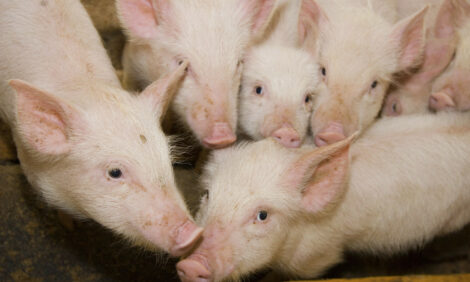



GM Approvals Must Be Speeded Up
UK - Non-GM contracts are a rarity these days. A few years ago there were a few around and they were moderately rewarding for pig producers. But that was when non-GM feed was plentiful and comparatively inexpensive.Anyone still supplying pigs specifically fed on non-GM feed will need to ensure the rewards justify the extra costs. The premium on non-GM soybean meal has risen from 33- 35 a tonne to almost 330 a tonne, and could soon be as much as 350 a tonne.
“A 20 per cent difference in pig diets will make a big difference to the feed costs of producers feeding non-GM diets,“ said BOCM Pauls chief operating officer Iain Gardner.

Less non-GM feed was now available, he said, as farmers around the globe switched to GM crops. Around 20 per cent of rapeseed is now GM, as is 43 per cent of cotton, 24 per cent of maize and 64 per cent of soya.
“No wonder it is getting increasingly difficult to find non-GM,“ he told a recent meeting of Young NPA at The Farmers Club.
The GM problem will impact on all pig producers, not just the few feeding specifically non-GM diets, because Europe has a zero tolerance policy on non-approved varieties.
Over the next six or seven years 72 new varieties of GM soya will be introduced in the main soya exporting countries.
"The big problem facing us is that it takes too long for these varieties to be approved in Europe which potentially means we will be able to use less and less soya grown in the States, Brazil and Argentina,“ said Iain Gardner.
The timescale between United States GM approvals and European GM approvals was far too long, he said. “We have got to get this issue sorted out. As producers, you need to let government know that one of your major proteins is going to be troublesome in the next five years or so.
“As compounders we have to work with producers on this issue because we just deliver what you want and you deliver what your customers want, and if costs are going to be much higher because of the time lag in new varieties being approved in Europe, we have to understand this going forward.“








